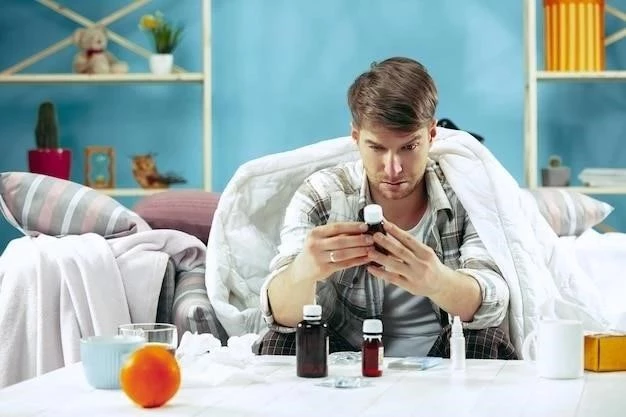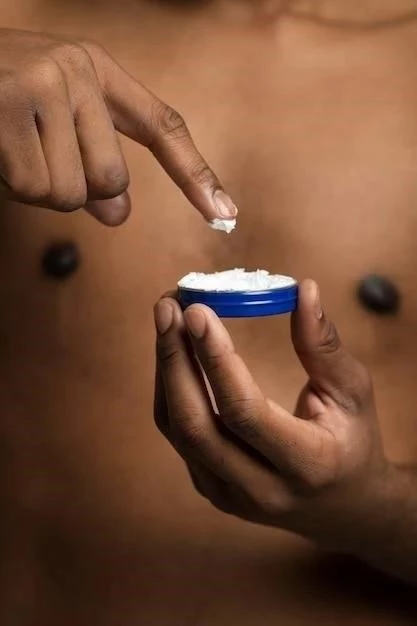
What is Nolvadex?
Nolvadex is a medication primarily used to treat breast cancer. It belongs to a class of drugs called selective estrogen receptor modulators (SERMs). SERMs are drugs that have both estrogen-like and anti-estrogen-like effects. Nolvadex is used to treat breast cancer in both women and men. It is also used to prevent breast cancer in women who are at high risk of developing the disease.
How Does Nolvadex Work?
Nolvadex works by blocking the effects of estrogen in the body. Estrogen is a hormone that can promote the growth of breast cancer cells. By blocking the effects of estrogen, Nolvadex can help to prevent and treat breast cancer.
Nolvadex is a competitive antagonist of the estrogen receptor. This means that it binds to the estrogen receptor and prevents estrogen from binding to it. When estrogen is unable to bind to the estrogen receptor, it cannot promote the growth of breast cancer cells.
Nolvadex is also a partial agonist of the estrogen receptor. This means that it can bind to the estrogen receptor and produce some of the same effects as estrogen. However, Nolvadex’s effects are weaker than those of estrogen. This means that Nolvadex can block the effects of estrogen in some tissues, while still allowing estrogen to produce its effects in other tissues.
The combination of these two effects makes Nolvadex a useful drug for the treatment and prevention of breast cancer.
Who Can Take Nolvadex?
Nolvadex is approved by the FDA for the treatment of breast cancer in both women and men. It is also approved for the prevention of breast cancer in women who are at high risk of developing the disease.
Nolvadex is typically used to treat early-stage breast cancer that is estrogen receptor-positive (ER+). This means that the cancer cells have receptors for estrogen, and estrogen can promote their growth. Nolvadex can be used to treat both premenopausal and postmenopausal women with ER+ breast cancer.
Nolvadex can also be used to prevent breast cancer in women who are at high risk of developing the disease. These women may have a family history of breast cancer, or they may have a genetic mutation that increases their risk of developing the disease. Nolvadex can help to reduce the risk of developing breast cancer by up to 50%.
Nolvadex is generally well-tolerated, but it can cause side effects such as hot flashes, night sweats, vaginal dryness, and nausea. These side effects are usually mild and go away after a few months.
If you are considering taking Nolvadex, talk to your doctor about the risks and benefits of the medication.
Who Should Not Take Nolvadex?
Nolvadex should not be taken by people who are allergic to tamoxifen, the active ingredient in Nolvadex. It should also not be taken by people who have certain medical conditions, such as⁚
- Active liver disease
- Severe kidney disease
- A history of blood clots
- A history of stroke or heart attack
- A history of endometrial cancer
Nolvadex can also interact with other medications, so it is important to tell your doctor about all of the medications you are taking before starting Nolvadex.
Nolvadex is not recommended for use in children.
If you are pregnant or planning to become pregnant, you should not take Nolvadex. Nolvadex can cause birth defects if it is taken during pregnancy.
If you are breastfeeding, you should not take Nolvadex. Nolvadex can pass into breast milk and harm your baby.
If you have any of the above conditions, talk to your doctor about whether Nolvadex is right for you.
What are the Side Effects of Nolvadex?
Nolvadex is generally well-tolerated, but it can cause side effects. The most common side effects of Nolvadex include⁚
- Hot flashes
- Night sweats
- Vaginal dryness
- Nausea
- Vomiting
- Headache
- Fatigue
- Weight gain
- Hair loss
- Skin rash
Less common side effects of Nolvadex include⁚
- Blood clots
- Stroke
- Heart attack
- Endometrial cancer
If you experience any of these side effects, talk to your doctor.
How to Use Nolvadex
Nolvadex is typically taken once a day by mouth. The dose of Nolvadex will vary depending on the reason you are taking it.
- To treat breast cancer, the usual dose of Nolvadex is 20 mg once a day.
- To prevent breast cancer in women who are at high risk of developing the disease, the usual dose of Nolvadex is 20 mg once a day.
Nolvadex should be taken with food to reduce the risk of stomach upset.
It is important to take Nolvadex exactly as prescribed by your doctor. Do not take more or less Nolvadex than prescribed, and do not stop taking Nolvadex without talking to your doctor.
If you miss a dose of Nolvadex, take it as soon as you remember. If it is close to the time for your next dose, skip the missed dose and take your next dose at the regular time. Do not take two doses of Nolvadex at the same time.
If you have any questions about how to take Nolvadex, talk to your doctor or pharmacist.
Dosage of Nolvadex
The dosage of Nolvadex will vary depending on the reason you are taking it.
- To treat breast cancer, the usual dose of Nolvadex is 20 mg once a day.
- To prevent breast cancer in women who are at high risk of developing the disease, the usual dose of Nolvadex is 20 mg once a day.
Your doctor may adjust your dose of Nolvadex based on your individual needs. It is important to take Nolvadex exactly as prescribed by your doctor. Do not take more or less Nolvadex than prescribed, and do not stop taking Nolvadex without talking to your doctor.
If you have any questions about the dosage of Nolvadex, talk to your doctor or pharmacist.

Duration of Nolvadex Treatment
The duration of Nolvadex treatment will vary depending on the reason you are taking it.
- To treat breast cancer, Nolvadex is usually taken for 5 years.
- To prevent breast cancer in women who are at high risk of developing the disease, Nolvadex is usually taken for 5 years or more.
Your doctor will tell you how long you should take Nolvadex. It is important to take Nolvadex for the full duration of treatment, even if you start to feel better. Stopping Nolvadex early may increase your risk of breast cancer recurrence.
If you have any questions about the duration of Nolvadex treatment, talk to your doctor.
Precautions for Taking Nolvadex
Before taking Nolvadex, be sure to tell your doctor if you have any of the following conditions⁚
- Active liver disease
- Severe kidney disease
- A history of blood clots
- A history of stroke or heart attack
- A history of endometrial cancer
Nolvadex can also interact with other medications, so it is important to tell your doctor about all of the medications you are taking before starting Nolvadex.
Nolvadex is not recommended for use in children.
If you are pregnant or planning to become pregnant, you should not take Nolvadex. Nolvadex can cause birth defects if it is taken during pregnancy.
If you are breastfeeding, you should not take Nolvadex. Nolvadex can pass into breast milk and harm your baby;
If you have any of the above conditions, talk to your doctor about whether Nolvadex is right for you.
Monitoring During Nolvadex Treatment
Your doctor will monitor you closely during Nolvadex treatment. This will include regular physical exams and blood tests.
Your doctor will also ask you about any side effects you are experiencing. It is important to report any side effects to your doctor right away.
If you have any of the following side effects, your doctor may need to adjust your dose of Nolvadex or stop treatment altogether⁚
- Blood clots
- Stroke
- Heart attack
- Endometrial cancer
Your doctor will also monitor you for any signs of liver damage. Nolvadex can rarely cause liver damage, so it is important to have your liver function tested regularly.
If you have any questions about monitoring during Nolvadex treatment, talk to your doctor.
Interactions of Nolvadex with Other Medications
Nolvadex can interact with other medications, so it is important to tell your doctor about all of the medications you are taking before starting Nolvadex.
Some medications that can interact with Nolvadex include⁚
- Anticoagulants (blood thinners)
- Anticonvulsants
- Antidepressants
- Calcium channel blockers
- Chemotherapy drugs
- Hormone replacement therapy
- Immunosuppressants
- Statins
These are just some of the medications that can interact with Nolvadex. It is important to tell your doctor about all of the medications you are taking, even over-the-counter medications and supplements.
Your doctor may need to adjust your dose of Nolvadex or the other medication, or they may tell you to avoid taking Nolvadex altogether.
If you have any questions about interactions between Nolvadex and other medications, talk to your doctor or pharmacist.
Where to Get Nolvadex
Nolvadex is a prescription medication, so you will need to get a prescription from your doctor before you can buy it. You can fill your prescription at any pharmacy.
Nolvadex is also available online from a number of reputable pharmacies. However, it is important to make sure that you are buying Nolvadex from a legitimate source. There are a number of counterfeit Nolvadex products on the market, so it is important to do your research before you buy.
If you are buying Nolvadex online, be sure to check the pharmacy’s website for a Verified Internet Pharmacy Practice Sites (VIPPS) seal. This seal indicates that the pharmacy has been accredited by the National Association of Boards of Pharmacy (NABP).
You can also check the NABP’s website to see if the pharmacy is licensed in your state.
Once you have found a reputable pharmacy, you can order Nolvadex online and have it shipped to your door.
If you have any questions about where to get Nolvadex, talk to your doctor or pharmacist.
How to Store Nolvadex
Store Nolvadex at room temperature, between 68°F and 77°F (20°C and 25°C).
Keep Nolvadex in a dry place, away from heat and light.
Do not store Nolvadex in the bathroom or in a medicine cabinet.
Keep Nolvadex out of the reach of children and pets;
Do not use Nolvadex after the expiration date on the label.
If you have any questions about how to store Nolvadex, talk to your doctor or pharmacist.

What to Do in Case of an Emergency Related to Nolvadex
If you experience any of the following side effects, stop taking Nolvadex and call your doctor right away⁚
- Blood clots
- Stroke
- Heart attack
- Endometrial cancer
These are serious side effects that require immediate medical attention.
If you overdose on Nolvadex, call your local poison control center or go to the nearest emergency room right away.
Symptoms of a Nolvadex overdose may include⁚
- Nausea
- Vomiting
- Dizziness
- Confusion
- Seizures
- Coma
Nolvadex overdose is a medical emergency. If you think you have overdosed on Nolvadex, call your local poison control center or go to the nearest emergency room right away.
Alternatives to Nolvadex
There are a number of other medications that can be used to treat breast cancer, including⁚
- Aromatase inhibitors
- CDK4/6 inhibitors
- Fulvestrant
- mTOR inhibitors
- PARP inhibitors
- PI3K inhibitors
- Trastuzumab
The best treatment option for you will depend on the stage of your breast cancer, your overall health, and your preferences;
If you are considering taking Nolvadex, talk to your doctor about the risks and benefits of the medication. Your doctor can also discuss other treatment options that may be right for you.
Research and Clinical Trials on Nolvadex
Nolvadex has been extensively studied in clinical trials. These trials have shown that Nolvadex is effective in treating and preventing breast cancer.
One of the most important clinical trials on Nolvadex was the National Surgical Adjuvant Breast and Bowel Project (NSABP) B-14 trial. This trial compared Nolvadex to placebo in women with early-stage breast cancer. The results of the trial showed that Nolvadex reduced the risk of breast cancer recurrence by 45%.
Another important clinical trial on Nolvadex was the Study of Tamoxifen and Raloxifene (STAR) trial. This trial compared Nolvadex to raloxifene, another SERM, in women at high risk of developing breast cancer. The results of the trial showed that Nolvadex was more effective than raloxifene in reducing the risk of breast cancer.
Nolvadex is also being studied in clinical trials for the treatment of other types of cancer, such as endometrial cancer and lung cancer.
The results of these clinical trials suggest that Nolvadex is a safe and effective treatment for breast cancer. Nolvadex is also being studied for the treatment of other types of cancer.
Frequently Asked Questions about Nolvadex
What is Nolvadex?
Nolvadex is a medication used to treat and prevent breast cancer; It is also used to treat other conditions, such as gynecomastia (enlarged breasts in men) and infertility.
How does Nolvadex work?
Nolvadex works by blocking the effects of estrogen in the body. Estrogen is a hormone that can promote the growth of breast cancer cells. By blocking the effects of estrogen, Nolvadex can help to prevent and treat breast cancer.
Who can take Nolvadex?
Nolvadex is approved by the FDA for the treatment of breast cancer in both women and men. It is also approved for the prevention of breast cancer in women who are at high risk of developing the disease.
Who should not take Nolvadex?
Nolvadex should not be taken by people who are allergic to tamoxifen, the active ingredient in Nolvadex. It should also not be taken by people who have certain medical conditions, such as⁚
- Active liver disease
- Severe kidney disease
- A history of blood clots
- A history of stroke or heart attack
- A history of endometrial cancer
What are the side effects of Nolvadex?
The most common side effects of Nolvadex include⁚
- Hot flashes
- Night sweats
- Vaginal dryness
- Nausea
- Vomiting
- Headache
- Fatigue
- Weight gain
- Hair loss
- Skin rash
Less common side effects of Nolvadex include⁚
- Blood clots
- Stroke
- Heart attack
- Endometrial cancer
How to use Nolvadex
Nolvadex is typically taken once a day by mouth. The dose of Nolvadex will vary depending on the reason you are taking it.
Dosage of Nolvadex
The dosage of Nolvadex will vary depending on the reason you are taking it.
- To treat breast cancer, the usual dose of Nolvadex is 20 mg once a day.
- To prevent breast cancer in women who are at high risk of developing the disease, the usual dose of Nolvadex is 20 mg once a day.
Your doctor may adjust your dose of Nolvadex based on your individual needs.
Duration of Nolvadex Treatment
The duration of Nolvadex treatment will vary depending on the reason you are taking it.
- To treat breast cancer, Nolvadex is usually taken for 5 years.
- To prevent breast cancer in women who are at high risk of developing the disease, Nolvadex is usually taken for 5 years or more.
Your doctor will tell you how long you should take Nolvadex.

